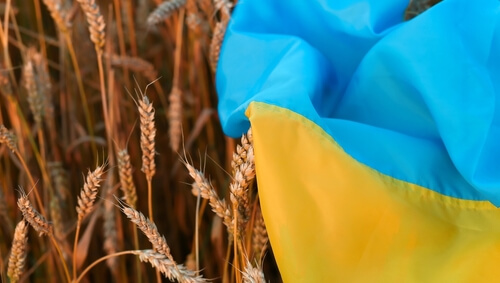On Thursday, wheat prices declined despite increased demand and import bans imposed by other countries against Ukraine crops.
Wheat futures for December delivery eased by -0.28% to $586.60 per metric ton on September 21’s Asian afternoon session. It dipped slightly from its $588.25 previous close price.
Meanwhile, as the Russia-Ukraine war continues, neighboring countries, Poland, Slovakia, and Hungary, imposed the Ukraine crops import ban last week. According to reports, these countries believe Kyiv exploits their local farmers’ prices down, which hurts their livelihood.
Furthermore, Kyiv filed a World Trade Organization lawsuit against the three countries about unilateral import restrictions. However, Poland remains firm to its imposed ban even though the European Union has not decided yet.
The restriction protects farmers’ interests as they are most vulnerable in these trying times. Slovakian Prime Minister Ludovit Odor said that the Ukraine crops ban will continue until the year-end.
On the other hand, other European countries still import goods like wheat to Ukraine as they need the supplies. However, the European Union proposed an export licensing system valid for 30 days to avoid grain escalation.
According to analysts, Ukraine exports are tallied to 2.2 million metric tons up to date. At the same time, experts expect to increase exports by 3 million metric tons by the end of the month.
Ukraine Appeals Wheat Unilateral Ban, UNCSV Reacts
Dispute between European countries, Ukraine appeals to the European Commission to lift the bans on Kyiv’s wheat and other crops.
The Ukrainian deputy prime minister and economy minister, Yuliya Svyridenko, said banning Ukrainian goods is unjust. Svyridenko’s notion that all members of the state bloc must coordinate on trade policy, as legislated by the European Union.
Hence, Bulgaria’s Finance Minister Asen Vassilev approved Ukrainian goods amid concerns of reduced tax revenue and increased food prices.
Meanwhile, the Romania National Union of Vegetable Co-operatives (UNCSV) action plan towards Ukraine’s appeal is an export licensing system. However, Romania’s Ministry of Agriculture and Rural Development will only allow wheat, corn, sunflower, and rapeseed for import licenses.











